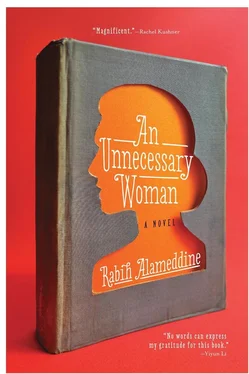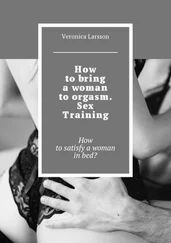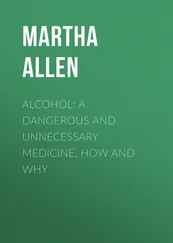What did he want?
“You know what I want,” he kept repeating, “you know what I want.”
It seemed suddenly as if the two Ahmads, the young shy one and the older rough one, were struggling, a soul battle. He’d grown both more confident and more bashful. He’d only briefly look at me before his gaze dropped to his loafers. When nervousness used to smite him years earlier, his gaze would drop to my shoes, not his.
“You know what I want.”
I didn’t. I racked my brain. What was he talking about? He always used to want books, but not in a while. He couldn’t blurt out what he wanted from me, could not enunciate desire. I stared, thought, actually scratched my head. Finally, as if inspiration had descended from above, I asked the most inconceivable of questions: “You want sex?”
It was what my Ahmad wanted.
“With me?” It was my turn to keep repeating—“With me? With me?”—like a silly Swiss cuckoo clock.
Why? I was a mess. I stank of sewage. I looked like the witch from Hansel and Gretel. I was forty. I was wearing a pink tracksuit, with swirling sequins no less. I didn’t even have lipstick on.
He had a shower.
“A shower?”
He nodded.
“Hot water?”
Ahmad must have killed many a lizard. During the war in Beirut, the powerful had power, but only those with true power had water.
I laughed, a bit nervously, dislodging air and apprehension from the nooks of my lungs — laughter of agreement. He met my eyes, more confident, delighted, having read the signs of my capitulation. They say laughter is the ultimate conjoiner.
I knew what Ahmad was. I’d heard rumors, mysterious stories, most too strange to be believed. One of the war’s preeminent torturers, he was called Mutanabbi (he could make a mute speak, a variation on the poet’s most famous stanza), an apropos literary nom de guerre, while other torturers chose generic names like Kojak, John Wayne, Belmondo, Jaws, or Cowboy. I knew the rumors to be true the instant I saw the apartment, and if not the apartment, every rumor would have been confirmed by the bathroom — marble, stainless steel, hard lines (to use Nabokovian and not Balzacian descriptions).
I knew, and I agreed to what he wanted. It was probably I, not Marcello or Ahmad, who had no moral code.
I wanted a gun. I wanted a shower. I made a choice. This could be a problem, being intimate with an almost intimate, but I decided to let him worry about things, let him contemplate if he chose to do so. I would not. I refused to be embarrassed. The water called my name.
The shower felt like a monsoon: hot, succulent, and baptismal. As filth dissolved off my skin, as grime emigrated, I felt rejuvenated, I was reborn. The near-scalding water changed my body from rigid to supple, turned my skin the color of a pink peony. My senses were sharpened. I used Ahmad’s razor to shave.
Drying myself with the luxurious towel was as close to a religious experience as I was ever likely to have. He waited for me in the bedroom; he fully dressed, I wrapped only in luxury. Excessive light. The Lladrós on the nightstand were bathed in molten sunlight gold. I nodded my head toward the translucent curtains. Ahmad rushed to draw them, plunging the room into demidarkness. The Ahmad I knew had momentarily returned, astonishingly sensitive, servile and compliant, content and optimistic. Toward the bed I tiptoed barefoot like a thief wishing not to be discovered, wishing not to arouse noise or echoes.
Before I unwrapped, I turned the Lladrós around. He must have thought it was excessive shyness. It wasn’t. I preferred not to have ugliness stare.
He said I was beautiful. I told him the figurines weren’t. He moved around the bed and scooped them all into the wastebasket. Once more, he lied and said I was beautiful. I told him I was alive.
From Donne:
Love’s mysteries in souls do grow,
But yet the body is his book.
Ahmad was not the first, nor would he be the last. He was surprised I didn’t lie down like a corpse. I wished to tell him that though I was by no means an experienced lover, I had been intimate with a few. I had studied Georges Bataille and Henry Miller, submitted to the Marquis, devoured the racist Fear of Flying , and cavorted with lewd Arab writers of the golden age who constantly thanked God for the blessing of fucking, al-Tifashi, al-Tijani, and al-Tusi, ibn Nasr, ibn Yahya, and ibn Sulayman; so many had taught me. I wanted to tell Ahmad that he shouldn’t have interrupted his studying. I wanted to tell him that it was Moravia, his deflowerer, who had written about the natural promiscuity of women. I did not, none of it.
How can one describe the ephemeral qualities of sex beyond the probing, poking, and panting? How can one use inadequate words to describe the ineffable, the beyond words? Those salacious Arabs and their Western counterparts were able to explain the technical aspects, which is helpful, of course, and delightful. Some touched on the spiritual, on the psychological, and metaphor was loved by all. However, to believe that words can in any way mirror or, alas, explain the infinite mystery of sex is akin to believing that reading dark notes on paper can illuminate a Bach partita, or that by studying composition or color one can understand a late Rembrandt self-portrait. Sex, like art, can unsettle a soul, can grind a heart in a mortar. Sex, like literature, can sneak the other within one’s walls, even if for only a moment, a moment before one immures oneself again.
I was intrigued enough by the strangeness of the situation that my memory retained a few palimpsests of the lovemaking, early images, when everything was technical or mechanical. Memory chooses to preserve what desire cannot hope to sustain. The images I retain, though, couldn’t have happened. In my memory, I can see myself with Ahmad, as if a part of me participated in the encounter and another floated high in the air, near the ceiling, and witnessed with disinterest.
Aaliya, the high one — Aaliya with the bird’s-eye view, above the mud and muck and life’s swamps.
What seeped through the mortar of my walls was not his technique (adequate) or his ardor (more than). I was on my knees facing away, he behind me still smelling of licorice and anise, engaged in an age-old rhythm. He slowed, and his fingers explored the topography of my lower back. I could feel his face descending, examining a tiny city on a map. His fingers squeezed gently before he removed them. At first, I tried to dismiss this interruption, considered it a possible sexual quirk, but his fingers resumed the exploration of the region, lower back and upper derrière. His fingers squeezed once more, and this time I realized what he was doing, I recognized the feel of a blackhead being extruded. When he removed a third, I looked back, and it was more likely that I’d have turned to butter than to salt. He apologized, begged my forgiveness. It had been unconscious. He couldn’t see a blackhead on his own skin without removing it and didn’t realize he was doing the same with me.
I asked him not to stop. I loved it.
His fingers happily reconnoitered my entire back, delicately, gently, and ever so slowly turned my skin into a smorgasbord of delicious feelings. I was touched. I buried my face in the pillow to hide my ecstasy and my tears.
My heart had momentarily found its pestle.
Ecstasy and intimacy are ineffable as well, ephemeral and fleeting. Ahmad and I didn’t repeat our interlude, never resumed the exploration. He won what he wanted, as did I.
Yeats once said, “The tragedy of sexual intercourse is the perpetual virginity of the soul.”
We lie down with hope and wake up with lies.
When the warlords ended their interlude a few days after, I felt protected within the walls of my apartment, sat vigil with the Kalashnikov close to my bosom.
Читать дальше












